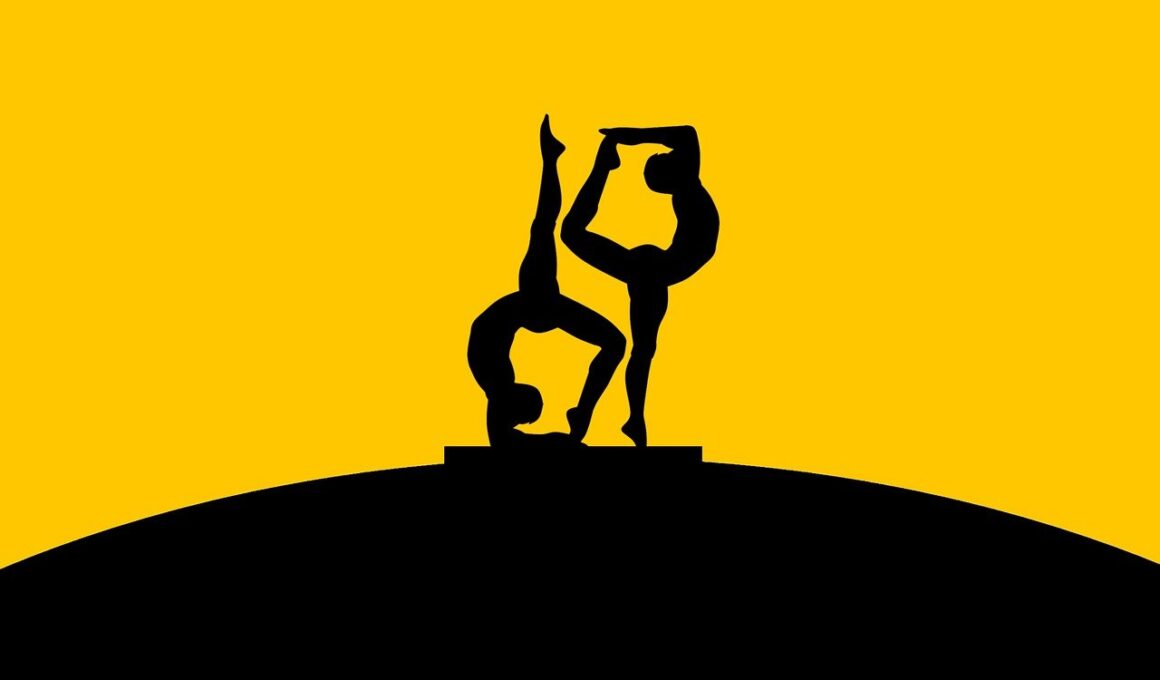Pilates for Enhanced Mobility: An Overview
Pilates is increasingly recognized for its beneficial impact on flexibility and mobility. This low-impact exercise method emphasizes controlled movements, aligning breath and body to enhance overall physical wellness. The discipline originated from the principles established by Joseph Pilates in the early 20th century, blending elements of yoga, gymnastics, and weight training. By focusing on core strength, stability, and proper alignment, Pilates can help individuals regain or enhance their range of motion. Fellow practitioners and trainers value Pilates for its adaptability, catering to both beginners and advanced athletes. Special attention is paid to breathing techniques and smooth transitions, which are essential for executing movements effectively. This method stimulates muscle engagement while ensuring minimal stress on joints, making it an excellent option for individuals recovering from injuries or those with chronic pain. Furthermore, Pilates sessions may often include the use of specialized equipment, such as reformers, enhancing resistance and providing support. As a practice, Pilates promotes mindfulness and body awareness, making it an appealing option for anyone looking to improve mobility without experiencing strain or injury. As a holistic approach, Pilates can transform not just the body, but also enhance mental well-being.
The Benefits of Pilates
The benefits associated with Pilates for enhanced mobility are numerous and compelling, making it a suitable choice for individuals of all backgrounds and fitness levels. One notable advantage is increased flexibility, as Pilates encourages the elongation of muscles and connective tissues. This increased flexibility can lead to improved performance in everyday activities and athletics. Additionally, Pilates helps develop core strength, which is the foundation for many movements. A strong core stabilizes the body, supports proper lifting, and enhances functional strength. In addition to flexibility and strength, Pilates promotes body awareness, allowing practitioners to connect with their physical selves and understand movement patterns better. With regular practice, individuals often notice greater balance and coordination in daily tasks. Furthermore, Pilates is beneficial for posture improvement, addressing muscular imbalances that contribute to poor alignment. This exercise method can be tailored to various needs, accommodating previous injuries or particular fitness goals. Regular engagement in Pilates enhances overall mobility while significantly contributing to injury prevention. Many individuals report feeling more energized and less fatigued, resulting in a holistic enhancement of overall health and fitness through a commitment to Pilates practice.
Incorporating Pilates into a wellness routine can yield lasting enhancements in mobility, particularly for those who lead a sedentary lifestyle. Many people neglect regular stretching and movement, leading to stiffness and reduced joint function over time. By integrating Pilates sessions into weekly schedules, individuals can combat these adverse effects and promote overall mobility. Consistency is key; commitment to a structured routine supports muscle memory development, resulting in long-term improvements. Beginners often start with basic movements before gradually advancing to more complex exercises. Pilates also encourages cross-training benefits, meaning that individuals may notice improvements in performance across various athletic endeavors. Those who engage in regular Pilates practice may also experience reduced muscle soreness after workouts. Among the key tenets of Pilates is focusing on controlled, low-impact movements, which facilitate recovery while enhancing muscular endurance and flexibility. Over time, individuals become more attuned to their bodies, enhancing self-defense against injuries. In addition, modern Pilates studios offer specialized classes targeting mobility enhancement. Effective instruction ensures that participants gain the most from their exercises, learning safe techniques to improve flexibility and strength simultaneously. Ultimately, integrating Pilates into physical routines transforms both body and mind.
Pilates Techniques for Mobility
Various Pilates techniques specifically target mobility enhancement, ensuring practitioners efficiently improve their flexibility and strength. Fundamental movements include the ‘Roll-Up,’ which encourages spinal articulation while stretching the hamstrings and enhancing coordination. Another essential exercise is the ‘Saw,’ promoting rotational movement through the torso and stimulating the spine’s natural flexibility. Additionally, practitioners benefit from ‘Leg Circles,’ which focus on hip mobility by engaging various muscle groups while stabilizing the core. The ‘Spine Stretch Forward’ provides deep stretching benefits, targeting the lower back and hamstrings, promoting elongation and flexibility. As individuals advance, more complex exercises such as the ‘Teaser’ challenge core strength while improving balance. Pilates emphasizes a controlled, breath-centered approach, ensuring priority is given to form and alignment, helping prevent injury. Each session aims to build on prior gains, progressively increasing intensity while respecting the body’s limits. This gradual progression yields better long-term outcomes for flexibility and overall mobility. Regular practice not only strengthens muscles but also enhances joint mobility through the combination of strength training and stretching. Many instructors tailor sessions to focus specifically on mobility, ensuring personalized progress and consistent evaluation of improvements.
Mindfulness also plays a crucial role in enhancing mobility through Pilates practice. By encouraging deep, focused breathing combined with precise movements, practitioners become more aware of their body’s signals. This connection between breath and movement can aid in achieving deeper stretches and more fulfilling exercise experiences. Effective Pilates sessions often include a mindfulness component, encouraging relaxation while promoting physical challenges. Participants frequently discover that mental clarity gained during Pilates enhances their overall quality of life outside the studio. In particular, this mindfulness fosters a positive relationship with one’s body, promoting self-acceptance and establishing greater body awareness. The meditative aspect of Pilates also allows for personal reflection and connection, creating space to manage stress more effectively. Many individuals report improved mental focus and reduced anxiety, leading to enhanced life quality overall. Furthermore, this mental clarity contributes to individuals’ confidence in their mobility progress and physical abilities. Adopted as a regular practice, Pilates serves as a foundation for improved performance in other sports or physical activities. Ultimately, cultivating mindfulness through Pilates not only develops physical capabilities but also encourages holistic well-being, shaping a healthier mindset toward oneself and one’s lifestyle.
Choosing the Right Pilates Class
Choosing the right Pilates class or instructor is essential for individuals looking to enhance their mobility effectively. Not all classes are created equal, and varying levels of expertise are often found among instructors. Therefore, it is crucial to find a class tailored to individual skill levels and goals. Beginners may benefit from introductory classes that emphasize foundation movements and core principles. More advanced practitioners can seek out specialized classes that focus on enhancing flexibility and strength. When attending a class, it is advisable to observe the instructor’s approach and observe their teaching style to ensure their methods resonate with one’s learning preferences. Additionally, many studios offer a variety of class formats, including mat Pilates, reformer classes, and even hybrid styles. The setting and equipment used play critical roles in determining the effectiveness of the experience. Consulting with the instructor before committing to a class can provide clarity on the targeted outcomes of the sessions. Those with unique mobility concerns should seek personalized sessions with experienced Pilates instructors. As a practice, Pilates leads to transformative results in mobility, strength, and flexibility, which can be achieved through thoughtful class selection.
In conclusion, embracing Pilates as a method to enhance mobility yields numerous physical and mental health benefits. Through its focus on core strength, controlled movements, and mindfulness, practitioners achieve improved flexibility and a heightened awareness of their bodies. The adaptability of Pilates allows it to cater specifically to individual needs, whether recovering from an injury or seeking improved athletic performance. Scientific studies have continually supported Pilates as an effective regimen for physical fitness, particularly in promoting recovery and enhancing mobility over time. The combination of stretching and strength-building exercises simplifies the healing process while reducing tension in muscles and joints. For those feeling the effects of a sedentary lifestyle, Pilates provides an excellent opportunity to reinvigorate movement and regain lost flexibility. Regularly implementing Pilates exercises can contribute to better overall posture and a lower risk of injuries. As a holistic practice, Pilates effectively extends beyond the physical realm, fostering enhanced mental resilience and self-awareness in practitioners. Therefore, investing in a commitment to Pilates ensures a rewarding experience characterized by ongoing benefits to mobility, strength, and overall well-being.
Attending a Pilates class not only promotes physical well-being but can also nurture a sense of community among practitioners. Being a part of a group enhances motivation, encouragement, and accountability, which can significantly improve commitment to the practice. Engaging with like-minded individuals may inspire participants to push their limits and share their experiences, enriching the overall journey toward heightened mobility and fitness. Many studios host workshops and events that foster camaraderie, promoting a supportive atmosphere for everyone. Additionally, studios often collaborate with health professionals, ensuring participants receive tailored advice that aligns with their unique health objectives. Seeking out a Pilates community can enhance the practice experience profoundly; individuals often find friendships and support networks within these spaces. As practitioners progress in their journeys, celebrating milestones and sharing successes together becomes an integral part of the process. Furthermore, nurturing relationships with instructors provides additional guidance and personalized insight into achieving individual goals. Together, these elements create a transformative environment in which mobility can be enhanced and overall health can flourish. Ultimately, being part of a Pilates community fosters a sense of belonging while encouraging lifelong fitness and mobility enhancements.


